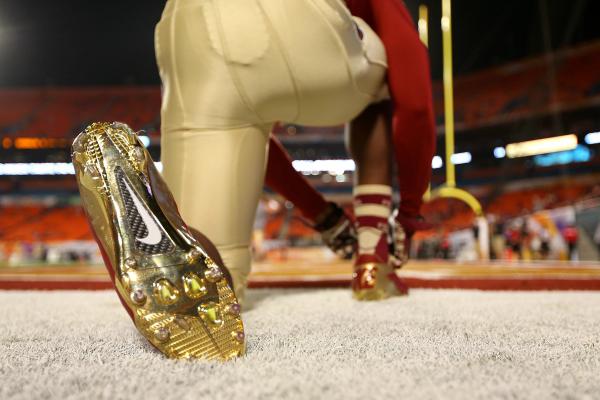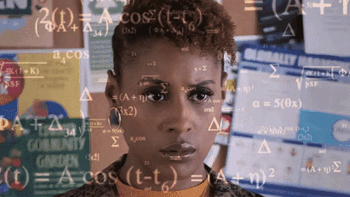Sports betting glossary

Sports Betting Glossary
Odds
The most important part of sports betting is the odds, because that’s how you determine how much money you can win on a bet. Cha-ching.
- American odds — the format you’ll see most often on North American sports betting sites — begin with either a minus sign (-) or a plus sign (+).
- They’re calculated with a $100 wager in mind, but don’t worry, you don’t have to ante up three figures to get in the game. For example:
- -165 (a $165 bet would win you $100 in profit)
- +500 (a $100 bet would net a cool $500 in profit)
- The less likely an outcome, the higher the odds, and the more a bet will pay. Bet less than $100? No sweat. Your winnings will be calculated as a ratio of those $100 odds.
Moneyline
A moneyline bet, the most basic bet in sports gambling, is simply picking the winner of a game.
- For example: You bet on the Golden State Warriors moneyline; if they win, you win! If they lose, well…you get the picture.
Underdog/Favorite
Our brains have been trained to think of “minus” as negative and “plus” as positive, but in sports betting it’s flipped! A plus sign (+) before a team’s odds indicates they're the underdog, while a minus sign (-) indicates they're the favorite.
- Pro tip: Think of it like a bet on the underdog has the chance to win you more money (ie. plus money).
Point Spread
This is how much a sportsbook predicts a team is going to win (-) or lose (+) by. We’ll set the scene with an NFL football example:
- The surging Tampa Bay Buccaneers are playing the struggling Dallas Cowboys. The moneyline is set at “Buccaneers -320” meaning the Bucs are heavy favorites and you’d have to bet a whopping $320 just to win $100.
- Alternatively, you can bet the spread. It’s set at “Bucs -7 (-110) / Cowboys +7 (-110).” So if you were to bet on the Bucs, they would have to win by more than 7 points for your bet to also win. But a bet of just $110 would net you $100 in winnings. High risk, high reward.
Push
A push is kind of like a draw or tie, and occurs when a bet neither wins nor loses. For example, if a game happens to end in a tie and you bet on the moneyline (aka bet on a certain team to win), the bet becomes a push and you get your money back — no losses, no gains.
If you’ve ever seen a betting option with a .5 (like will a quarterback throw more than 2.5 touchdowns), this doesn’t mean half of a touchdown, this is so a sportsbook can eliminate the possibility of a push. Two touchdowns is less, three touchdowns is more — meaning this bet either wins or loses.
Cover
It’s not just what you pay to get into your favorite bar. In sports betting, this relates specifically to point spreads. When a team “covers,” it means they have beaten the point spread attached to the bet.
- So if the Green Bay Packers were favored by 4 (that would read as Packers -4) and won by 5, they covered the spread and turned a profit for those who bet on the spread.
Tail / Fade
Sports betting lingo for whether you're going to bet the same as some one (tail) or bet the opposite (fade). You also might see the acronym "BOL" around these terms, which stands for best of luck!
Juice
Ever heard of the phrase “the house always wins”? The juice (also known as “vig”) is how a sportsbook takes a cut on a bet, kind of like a mini fee for taking your bet.
- If you were flipping a coin with a friend, the chance of it landing on heads or tails is exactly 50/50. So if you were betting on that coin toss, your odds would be heads (+100) and tails (+100), meaning any correct bet would exactly double your money.
But this isn’t the case on sportsbooks. That same coin flip bet would likely be listed with odds like heads (-110) and tails (-110).
- Even though the chance of each outcome is exactly the same, your winning return would be a little less than double, and that 10% difference would be pocketed by the sportsbook. Blame it on the juice, indeed.
Parlay
Think of a parlay like a layered bet. A parlay (no, not that parley) combines two or more bets to greatly increase your possible payout but…it greatly decreases the chance of actually winning.
- Let’s say you want to bet on the Green Bay Packers to win (-110) and the total score of the game to be more than 50 points (-125). You can bet on those individually or you can parlay them together with a combined odds of +243*.
- The reason the payout is bigger is because the chances of both of those bets winning is much smaller. Remember: the less likely an outcome, the more money you could make.
You can also parlay bets across sports (a Packers and NWSL’s Portland Thorns bet, perhaps?) but most sportsbooks will cap a parlay at 10 total bets.
*Confused where +243 came from? To calculate a parlay, the odds must first be changed into decimal odds, multiplied together and then reconverted back to American odds. Luckily, sportsbooks do this complicated math for us, but you can read a full explanation here.
Prop Bet
Put simply, a prop bet is any wager not tied directly to the outcome of the game. And the Super Bowl is a prop better’s dream.
- Some common Super Bowl prop bets include: what color Gatorade will be dumped on the winning coach, which song the halftime performer will sing first, how long the national anthem will be and who will win the coin toss. Nothing like a Gatorade shower to celebrate a win.
Fantasy Sports
Individual sports betting involves one specific outcome either happening or not happening (a win or a loss), but fantasy sports involve building a team of players to compete against other teams of players. Those players accumulate fantasy points based on how they perform IRL.
There are various ways to participate in fantasy sports, most commonly by drafting a team that competes across an entire season. (Much like your Fantasy Bachelor Draft.) But there are also daily fantasy sports (DFS), where the group of players you select only competes for a single game.
Want more? Check out our guides to Fantasy Football and Fantasy Hockey!
Enjoying this article? Want more?

Sign up for The GIST and receive the latest sports news straight to your inbox three times a week.



